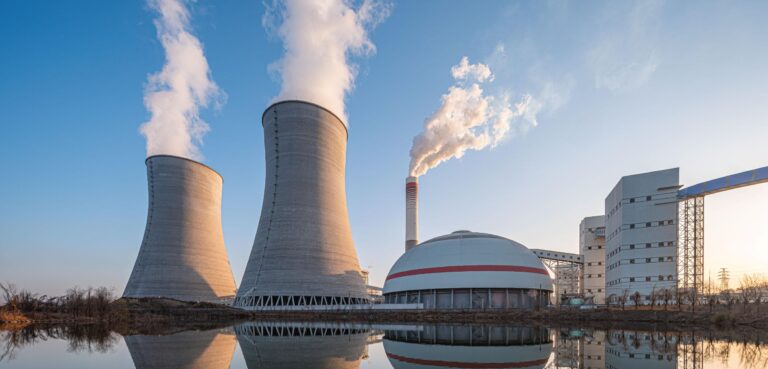France is making a decisive move to reinvigorate its nuclear industry as a key driver of economic growth and energy security. In a strategic push highlighted by World Nuclear News, the French government is mobilising resources and policy support to expand nuclear infrastructure, foster innovation, and enhance the sector’s global competitiveness. This renewed focus comes amid growing demands for low-carbon energy solutions and the country’s ambition to solidify its position as a leader in nuclear technology on the world stage.
France accelerates nuclear sector investment to drive economic expansion
France is intensifying its commitment to the nuclear industry as part of a broader strategy to invigorate economic growth and ensure energy security. The government has earmarked substantial funding to support the development of next-generation reactors, modernization of existing facilities, and research into cutting-edge nuclear technologies. This move underscores France’s ambition to reclaim its position as a global leader in nuclear power while stimulating job creation and regional development across the country.
Key investment highlights include:
- €15 billion allocated over the next decade to expand nuclear infrastructure.
- Accelerated projects for Small Modular Reactors (SMRs) to foster technological innovation.
- Partnerships with private sector leaders to boost supply chain resilience and export potential.
| Investment Area | Budget (€bn) | Expected Impact |
|---|---|---|
| Reactor Construction | 7.5 | Increase generating capacity by 20% |
| R&D on SMRs | 3.0 | Innovation in modular design |
| Facility Upgrades | 4.5 | Improve safety and efficiency |
Government unveils strategic partnerships to bolster reactor innovation and supply chains
In a bold move to reinforce its position as a global leader in nuclear technology, France has announced a series of strategic collaborations aimed at accelerating advancements in reactor design and ensuring resilient supply chains. The government’s initiative brings together industry giants, innovative startups, and research institutions, fostering an ecosystem where technological breakthroughs align with sustainable and secure energy goals. Key areas of focus include next-generation reactor safety features, modular construction techniques, and digital integration for enhanced operational efficiency.
These partnerships promise to address long-standing challenges within the nuclear sector by streamlining component availability and reducing production bottlenecks. Among the primary objectives are:
- Strengthening domestic supplier networks to mitigate reliance on external markets
- Scaling up manufacturing capabilities to meet rising global demand
- Accelerating R&D efforts in advanced materials and reactor safety systems
- Deploying digital tools for predictive maintenance and lifecycle management
| Partnership Focus | Lead Entity | Expected Outcome |
|---|---|---|
| Advanced Reactor Development | CEA & EDF | Deployment-ready prototypes by 2028 |
| Supply Chain Resilience | Areva & Local SMEs | 50% reduction in component lead-times |
| Digital Innovation | Startups & Research Labs | Integrated monitoring platforms |
Experts call for enhanced regulatory support and skilled workforce development to sustain growth
Industry leaders stress the urgent need for a robust regulatory environment that can keep pace with France’s ambitious nuclear expansion plans. They argue that streamlined approval processes, coupled with adaptive safety frameworks, are critical to fostering investor confidence and accelerating project timelines. Without such enhancements, the sector risks delays that could hamper national energy goals and economic growth. Experts also emphasize the role of transparent communication between regulators, operators, and the public in maintaining social license and mitigating opposition related to nuclear development.
Equally important is the development of a well-trained workforce capable of supporting the complex demands of nuclear operations and innovation. Current skills shortages in engineering, project management, and specialized technical roles represent a bottleneck to scaling up activities nationwide. To address this, authorities and industry players are advocating for targeted education programs and vocational training initiatives, alongside reskilling efforts for existing employees. The table below highlights key workforce development priorities identified by sector specialists:
| Priority Area | Focus | Outcome Expected |
|---|---|---|
| Technical Education | Expand nuclear engineering curricula | Increase supply of qualified engineers |
| Vocational Training | Develop hands-on skill modules | Improve operational efficiency |
| Reskilling Programs | Transition workers from other sectors | Address immediate labor shortages |
| Regulatory Training | Enhance understanding of updated standards | Ensure compliance and safety |
Insights and Conclusions
As France accelerates efforts to revitalize its nuclear sector, the nation’s commitment underscores a broader strategy to secure energy independence and drive economic growth. With investments pouring into reactor modernization and new projects on the horizon, the coming years will be pivotal in determining the role of nuclear power in France’s energy landscape. Observers worldwide will be watching closely as the country positions itself at the forefront of a nuclear renaissance.




